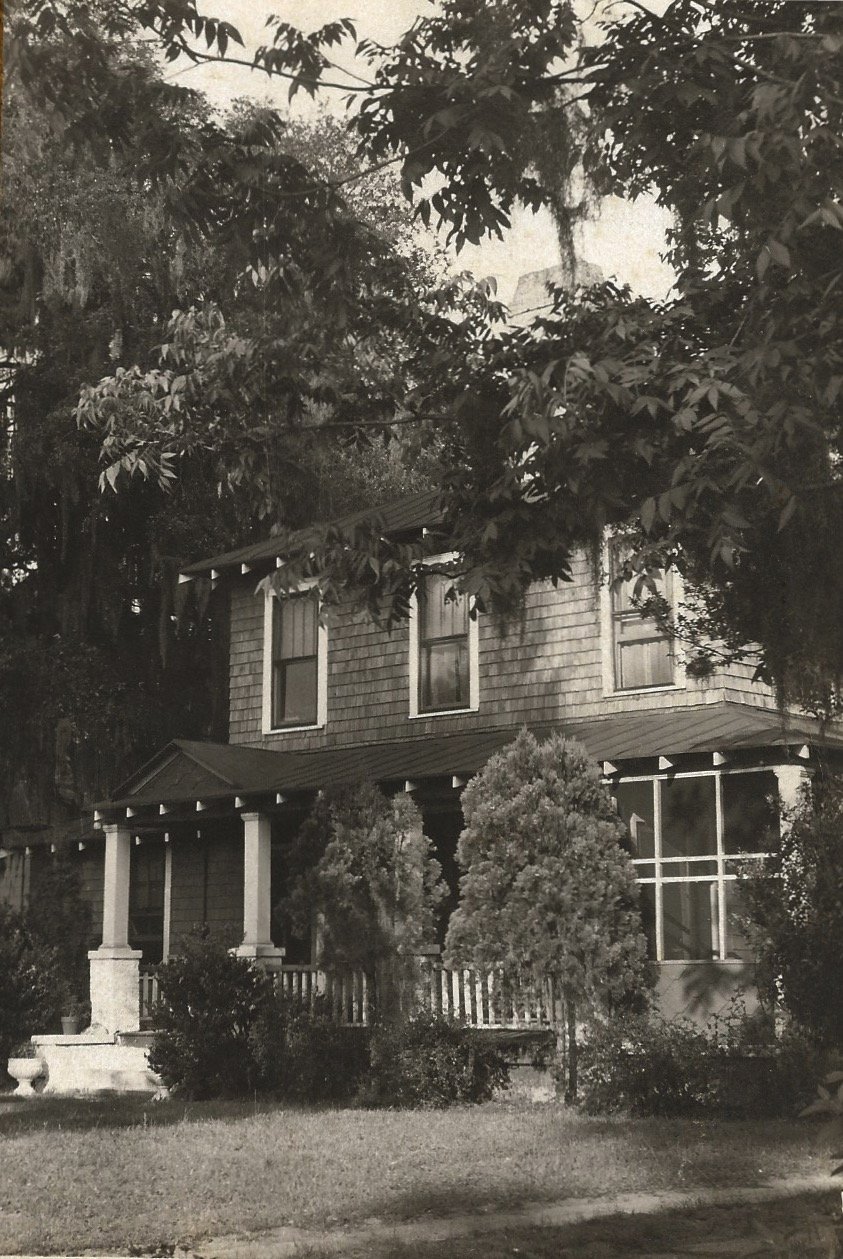PRIVATE RESIDENCE
Photo provided by the family, circa 1949.
The homeowners have commissioned LPC to complete extensive archival research as well as the preparation of the National Register Nomination for the 1893 property.
The property is a unique piece of the developmental history of the City of Savannah and the surrounding Chatham County area. This property is significant as an example of the settlement, dissolution, and development of plantations surrounding Savannah. Historically, the land the home is situated on was included in the Placentia Plantation, a part of Savannah’s rice plantation system. Plantations, such as Placentia, were established once the ban on slavery was lifted in Savannah. Placentia Plantation was owned by notable colonial Georgia figures, and later by a mayor of Savannah. During the mid-nineteenth century, as Savannah and its surrounding environs were expanding, the plantation was dissolved and subdivided into twelve lots, referred to as the Placentia Tract. The property is a portion of the approximately 64-acre lot nine of this tract. The ownership of lot nine, and its subsequent subdivision, is significant not only for the notable men who previously owned the plantation, but also because it was owned by several women at a point in history when women were typically dependent on male family members. Throughout the end of the nineteenth century and into the early twentieth century, the Placentia Tract lots continued to be subdivided into smaller lots. One such smaller lot consisting of 7 acres was purchased as a small family farm by a prominent African American man who had a profound impact on Georgia’s African American youth.
